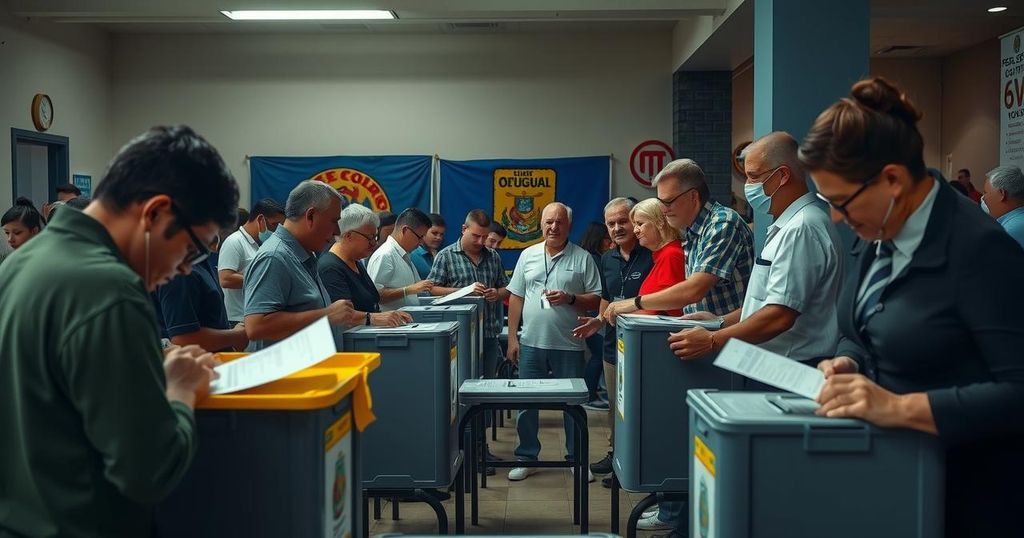Uruguay Prepares for Tight Presidential Election Runoff

On November 24, Uruguay will conduct a critical presidential runoff between Yamandu Orsi and Alvaro Delgado. Public opinion suggests a very competitive election, potentially decided by a thin margin. The country exhibits a distinct political climate, less polarized than its regional counterparts. Polling stations will open in the morning, with initial results anticipated shortly after the polls close.
On Sunday, voters in Uruguay will participate in a closely contested second-round presidential election featuring the center-left candidate Yamandu Orsi and the conservative Alvaro Delgado. This election is notable due to its competitive nature, with final opinion polls indicating that the leading candidates may be separated by less than 25,000 votes. Uruguay’s political climate is characterized by relative stability and a lack of sharp ideological divides, contrasting with the tumultuous elections seen in neighboring countries. Both candidates are vying for the support of unaligned voters while navigating public expectations regarding economic conditions. Poll stations will open at 8 a.m. local time, with results anticipated shortly thereafter.
Uruguay, a small nation in South America with a population of 3.4 million, is recognized for its progressive policies, including the legalization of marijuana and a relatively stable political environment. The upcoming election comes after a year of significant electoral activity across South America, in a climate where many incumbent parties globally have faced declining support due to economic challenges. The moderate and overlapping political landscape in Uruguay sets the stage for a unique election, drawing attention to the candidates’ approaches to governance without drastic policy shifts.
The presidential race in Uruguay between Yamandu Orsi and Alvaro Delgado encapsulates the nation’s moderate political ethos, as well as the potential for change amidst a backdrop of economic awareness among voters. With the election results expected to be closely contested, the outcome may not only influence Uruguay’s immediate political direction but also reflect broader trends affecting incumbents in global elections. Ultimately, the candidates’ ability to unite voters and respond to pressing economic concerns will be critical.
Original Source: www.ndtv.com







